Leading by Example
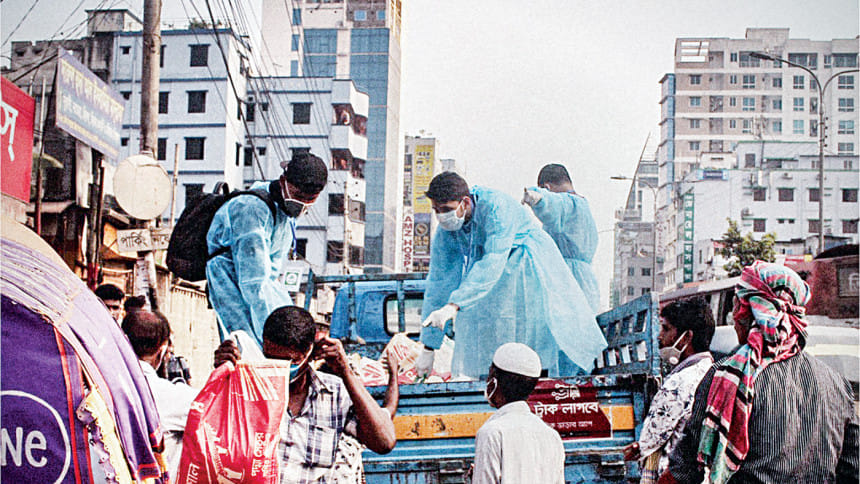
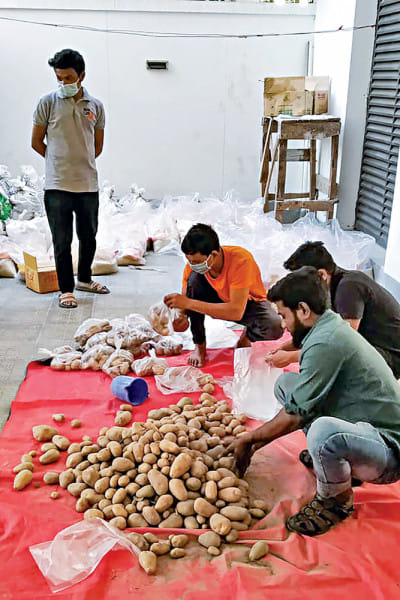
People respond differently when faced with crises. As we crawl our way together through this pandemic carefully, with masked faces and gloved hands in the safety of our own homes, some of us have risen to the occasion. Amidst the chaos, many young individuals have dedicated themselves to the service of the disadvantaged, to selflessly support anyone and everyone facing the daily struggles of life in Covid-19.
Apart from the obvious — people being newly infected and so many suffering or dying from this deadly virus — there are other challenges that many people are having to face. With no work and the loss of jobs, many families have lost their only source of income, leaving them struggling to make ends meet. The less fortunate with barely a roof over their heads are starving as they live completely exposed to the dangers of this disease. Many of us are unaware about the exact nature of the challenges the people have to face outside the walls of our homes and the people on the streets.
"The middle-class families are struggling financially," says Tahniat Bushra Waheedi, student of North South University, one of the lead volunteers at Charge for Dhaka, Bangladesh Food Bank and founder of the group Feed a Family. "It was unexpected and a lot of these families are unable to ask for help, leaving them to suffer in silence."
"This pandemic is also affecting people mentally and emotionally," she further explains. "We wanted to make this easier. We wanted to ease their pressures of daily life."
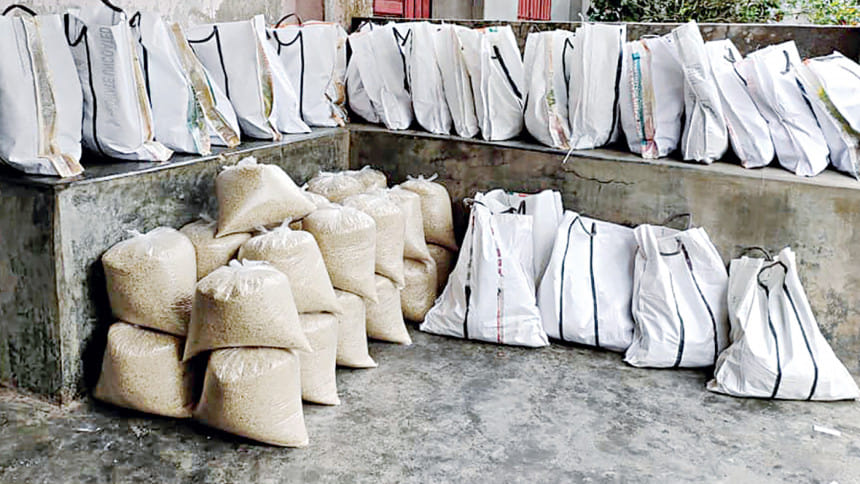
In this group, the members have the chance to anonymously reach out for help. The initiators have also not put verification past them, ensuring that only those in need would receive aid. Upon checking, they then made arrangements to deliver groceries to the families in need, so that each family had food on their tables at the end of the day.
Apart from the basic struggles of being at home and cut off from the outside world is the fact that everyone tends to panic, mostly because they don't fully understand the problem and what is being done to deal with it.
"Awareness is an increasing problem among almost all mediums of people," explains Tasneem Batool, recent BRAC University graduate and Vice President of Ashia. "The situation needs to be explained to them so they don't panic and abide by the necessary guidelines and instructions."
However, the suffering does not take into consideration which social class one comes from.
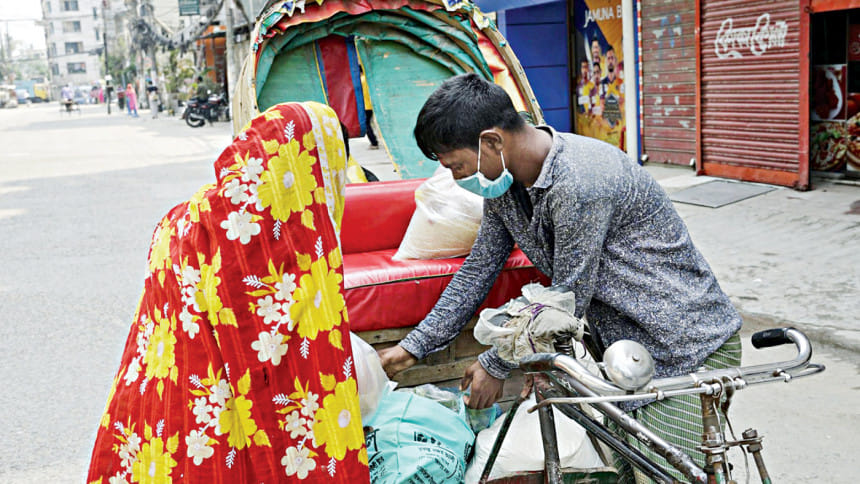
"The daily workers and labourers have been suffering quite a bit," says Abir Ahmed Khan, CEO and Founder of Rising Star Charity Bangladesh.
His team went all out during the month of Ramadan in an attempt to make sure that everyone was provided with iftar. He mentions, ecstatically, "We've successfully been able to provide homemade iftar to approximately 11,000 people, every day."
Along with this charity organisation is a group of university students who recently conducted an independent drive to help those in need. Ifreet Taheea, a North South University student, along with her friends Taslim Imam Khan,Tazwar Hussain, Mohaiminul Kamal, Rabea Ahmed, Naymour Rahman Khan and Sayad Zunaid Alavee opened a group on Facebook titled Dhaka Covid-19 Crisis Relief. They took the initiative to provide food and medicine to the less fortunate ones.
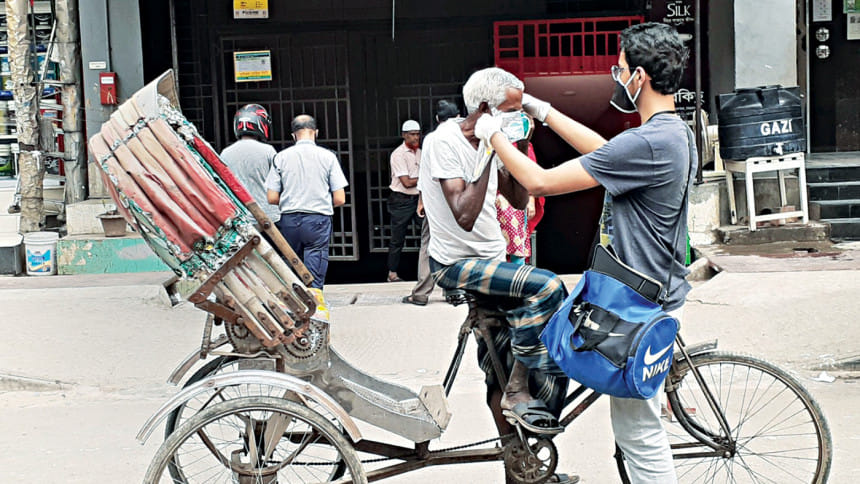
"We tried to make sure that we could tackle the basic necessities," Ifreet tells us. "Because before we can do anything we need to make sure that they have food items as well as other essentials and supplies for safety."
In all this chaos, those who are actively working in the frontlines to combat the virus shouldn't be left behind at all. The doctors and nurses who are spending sleepless nights tending to patients also need our attention and gratification.
"Alongside struggling families and the poor, we've been trying to supply the nurses and doctors with nutritious food," Tasneem adds. "Because after a long hard day at work, a lot of them don't get to go home. We want to make sure we are serving those who are serving us."
Food and income isn't the only thing that has been difficult to come by during this pandemic. Hospitals have run dry of equipment and medical supplies with the rising influx of the infected.
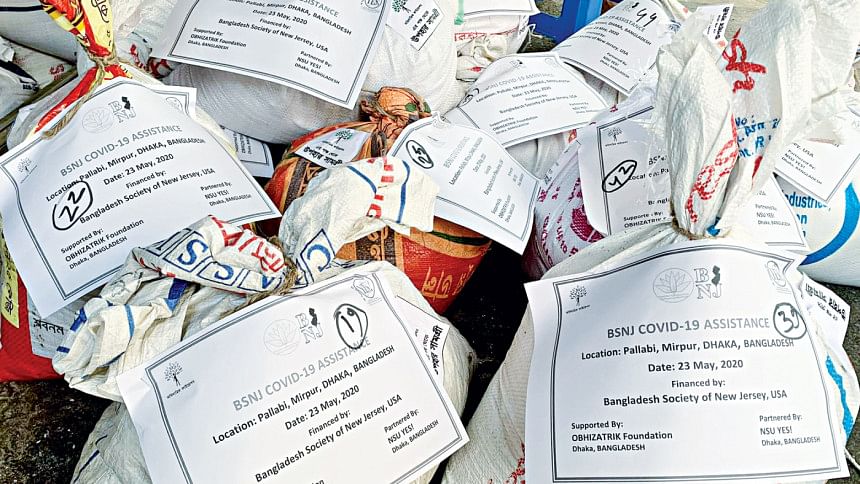
"We've made it our priority to help those fighting in the frontline for us in this global pandemic," says Ahmed Imtiaz Jami, President of Obhizatrik Foundation. "We've been distributing PPE and sanitizer to the doctors of Bangladesh Medical College Hospital and donated to the Chattogram Field Hospital."
Jami also attempts to help protect those who are out praying. He adds, "We've also given out sanitizers to the mosques in areas around Dhaka."
When we see others taking brave steps towards doing good for the people, the intention to do the same ignites in us too. Having said so, we always don't know how. For those who want to help and are looking for an opportunity to, we asked these organisations how they can contribute — how you can support the people in need.
"Letting people know," responds Abir. "Being informed doesn't just help with more donations but also helps inspire others to join our cause. Work with us to help people."
If people have such positive influences more readily available and visible to everybody, it'll undoubtedly turn the push to shove, making more people follow their hearts to serve the society. Charity, however, doesn't have to start at some organisation. It can start right at home.
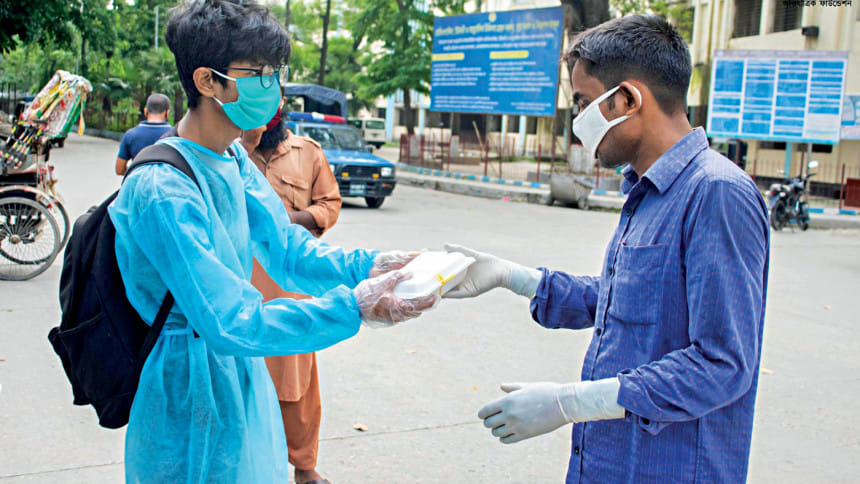
"You don't need to be part of some group if you want to help people," Ifreet explains. "Help your neighbour. Do something for your domestic help and their families. Charity is in kindness."
Volunteering for charity changes people in ways unimaginable. When exposed to the hardship and suffering, even teenagers gain perspective and grow as humans.
"I see empathy in the eyes of all my younger school-going volunteers," says Tahniat, beaming with pride. "A new compassion is born within us when we have the pleasure of doing these things. The younger you start, the better."
Moreover, each of these organisations have also already started making arrangements to help those affected by the recent cyclone Amphan, trying to make sure people in coastal areas have the right shelter and means to survive. Throughout everything that they're doing, they have made sure to follow all the necessary guidelines including wearing masks and gloves and managing crowds as much as they can to try and prevent the spread of virus.
Youth-led organisations — old and new, big and small — spread across the country deserve praise for their selfless initiatives and contributions. Every little that they are doing is making a world of difference in the lives of many. So we urge the youth to do something. It can be as simple as not throwing out the leftover food. It can be cooking just a little extra for the security guard that lives downstairs, or the person who runs a tea stall down the road. It can be emptying a few clothes out of your closet and handing it to a little child. Start small. One does not have to leave their home to do something. One can do a lot from within the safety of their homes and the lockdown.
Stay safe, stay home and take that first step towards kindness.
Syeda Erum Noor is dangerously oblivious and has no sense of time. Send help at [email protected]

 For all latest news, follow The Daily Star's Google News channel.
For all latest news, follow The Daily Star's Google News channel. 



Comments